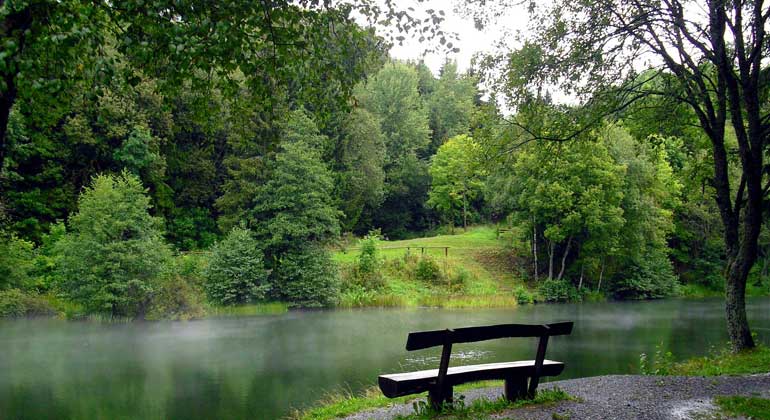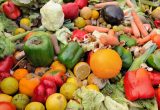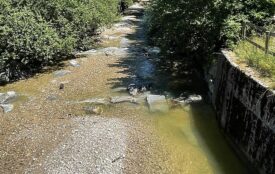World Needs Broader Appreciation of Nature’s Contributions to People
Plentiful food, clean water and healthy air are among the most valuable and visible benefits of nature to people. This has reinforced the widespread, and increasingly controversial, belief that nature is mainly a source of services or commodities.
Writing today in the prestigious journal Science (access freely via https://www.ipbes.net/node/16566), thirty global experts associated with the Intergovernmental Platform on Biodiversity and Ecosystem Services (IPBES), and led by Professor Sandra Díaz, and Professor Unai Pascual, have presented an innovative new approach: the idea of using all of nature’s contributions to people to inform policies and decisions.
Among the authors of the SCIENCE paper are also Carlos A. Guerra (research group Biodiversity Conservation at iDiv & MLU) and Matthias Schröter (research group Ecosystem Services at UFZ & iDiv, now UFZ). Both were involved in the IPBES ECA assessment.
“For more than a decade, policies about nature have been dominated by knowledge from the natural sciences and economics,” said Sandra Díaz. “The vibrant research developed from this ‘ecosystem services’ approach – popularized by the landmark 2005 Millennium Ecosystem Assessment – has advanced sustainability, but largely excluded insights and tools from the social sciences, humanities and other key worldviews. The much broader notion of nature’s contributions to people emphasizes that culture is central to all of the links between people and nature, and recognizes other knowledge systems, for example those of local communities and indigenous peoples, much more than before.”
Sir Robert Watson, IPBES Chair and former co-chair of the Millennium Ecosystem Assessment, said: “Nature’s contributions to people are of critical importance to rich and poor in developed and developing countries alike. Nature underpins every person’s wellbeing and ambitions – from health and happiness to prosperity and security. People need to better understand the full value of nature to ensure its protection and sustainable use.”
“This new inclusive framework demonstrates that while nature provides a bounty of essential goods and services, such as food, flood protection and many more, it also has rich social, cultural, spiritual and religious significance – which needs to be valued in policymaking as well.”
Many people think about nature’s benefits in terms of flows of money, or grains, or timber from ecosystems to them – the new approach allows for that, but it also provides space for those who have different understandings about their relationships with nature. “Food is a great example,” said Unai Pascual, “We all receive food from nature and food security is a key aspect that has typically been included in policies and decisions around the world, often measured in the context of calories per day, biological processes and economic value, for example. But we know that food is so much more. It’s at the center of cultural identities, art and basic human enjoyment. It is these kinds of non-material contributions from nature that the new approach seeks to represent and include in decisions about the way we relate with nature.”
One of the many concrete applications of this new approach is its uptake in large-scale expert assessments and how these are conducted. Professors Díaz and Pascual concur that nature’s contributions to people is a scientific advancement embracing, but going beyond the ecosystem services approach, which will increase the effectiveness and legitimacy of policies and decisions about nature. “This inclusiveness and equity among knowledge systems and perspectives will not only make expert assessment processes more legitimate, it will also lead to better policy results because we will be drawing from a much richer and wider information base”.
Four IPBES regional assessments (https://goo.gl/KqMeJo) of biodiversity and ecosystem services, expected to be released in March this year, have already included unprecedented efforts to tap indigenous and local knowledge, and nature’s contributions to people are already a central feature of the IPBES global assessment, expected in 2019.
“Nature’s contributions to people is an important evolution of and complement to the concept of ecosystem services,” said Anne Larigauderie, Executive Secretary of IPBES and one of the authors of the article. “It can improve the way we frame and understand the diversity and complex relations between people and nature. This more inclusive approach will also increase the relevance and value of expert evidence about nature in tackling international development commitments such as the Sustainable Development Goals”.
Paper:
Diaz et al. (2018): An inclusive approach to assess nature’s contributions to people. SCIENCE, 19 JANUARY 2018, VOL 359 ISSUE 6373. DOI: 10.1126/science.aap8826
Source
German Centre for Integrative Biodiversity Research (iDiv) – Halle-Jena-Leipzig 2018








